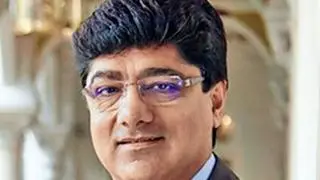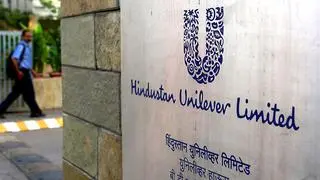An expansion into the cafe retail business is definitely on ITC’s radar, said Anuj Rustagi, Chief Operating Officer, Chocolates, Confectionary, Coffee and New Categories - Food Division, ITC Limited. He reaffirmed to a question on the acquisition of Cafe Coffee Day, that there is no active consideration which is happening on that.
Talking about expansion plan into the cafe retail business, Rustagi told BusinessLine , “We continue to evaluate all business opportunities on that. So, it is definitely on the radar, but it has to create value for us and we have to have a differentiated strategy for value to the consumer. Unless those two pieces are set, there is no point in entering the business. There is a reason why the current players entered into trouble. So, we have to be cognisant and for the right price, right opportunity and our right to win in that segment, we continue to evaluate everything. Right now, there is no active consideration as you would have read in the news. But, I will not rule it out, that we will not on our own, or through other partnerships or opportunities, not enter such a segment.”
Meanwhile, the FMCG sector in the country has been facing headwinds, as the growth trend continues to be dampened by the drop in consumption which has moved to 3.9 per cent in Q3 2019, down from 13.2 per cent in Q3 2018 (July to September 2019), as stated by Nielsen’s India FMCG Growth Snapshot.
The current slowdown beleaguering the FMCG sector has impacted ITC too, but ITC’s strategy remains the same, said Rustagi.
Way forward
In fact, it is on its path to achieve the ambition which it had set for itself, which was for its FMCG business to achieve ₹1 lakh crore revenue by 2030, and within that, for the food division to hit ₹70,000 crore. “You have to be far more financially conscious in a slowdown, but with that there are opportunities which come up, and we are working with all our channel partners — modern trade, e-commerce — to drive growth,” he said.
In order to achieve this, it is focussing on growing its brand and portfolio, continuing to enter new segments like it did with chocolate and coffee, incubating a lot of new businesses, as well as initiating new launches across its brands, he said. “Innovation is a big engine at ITC to drive and achieve that growth, on existing brands and launching new categories and new brands,” he added.
“In spite of the slowdown, what is happening is that sugar and milk prices are going up and that is required for farmer income increasing. So, you have a pressure on cost and the market is slow. As business leaders, you have to be cognisant of both and respond appropriately which me and my colleagues are seized with. And within that, find opportunities to give value to our consumers and not dilute any parameter of quality which ITC products are known for, whether it is a one rupee candy you buy or whether it is this a ₹1 lakh rupee chocolate. So we will operate across the price spectrum, (and ) you can expect high quality products from ITC’s entire portfolio,” Rustagi explained.
Premiumisation
Premiumisation is a focus area for the FMCG business of ITC, especially in the chocolate segment, affirmed Rustagi. To be sure, Fabelle Exquisite Chocolates, the company’s home-grown luxury chocolate brand launched in 2016, on Tuesday ITC launched the most expensive chocolate in the world listed under the Guinness World Records. Named Fabelle Trinity - Truffles Extraordinaire, it is priced at ₹4.3 lakh approximately for a kilogram.
Rustagi said that this launch will be immune to the current slowdown beleaguering the economy in general, as its buyers will be a select few consumers who are a little bit more price inelastic, therefore cushioning it from the impact of the economic downturn. “It’s not like if the economy was growing at say 7 per cent, there will be a lot more buyers for a ₹1 lakh rupee chocolate (the price for a box),” he pointed out.
For Fabelle, the aim is to “build a brand and an experience which is really differentiated at the top end and then see how we can nurture and grow that segment, and extend that experience in various formats to a wider audience over time.” Going forward, for Fabelle, there will be more premiumisation at each segment, starting from the cheaper categories to the most premium categories, he added.








Comments
Comments have to be in English, and in full sentences. They cannot be abusive or personal. Please abide by our community guidelines for posting your comments.
We have migrated to a new commenting platform. If you are already a registered user of TheHindu Businessline and logged in, you may continue to engage with our articles. If you do not have an account please register and login to post comments. Users can access their older comments by logging into their accounts on Vuukle.